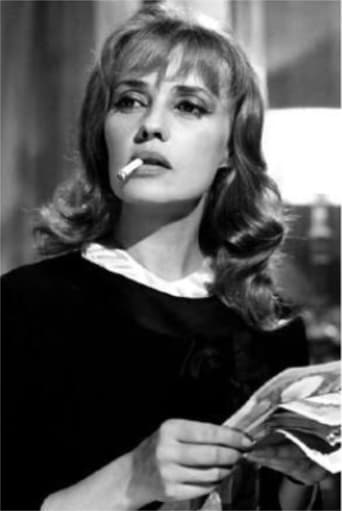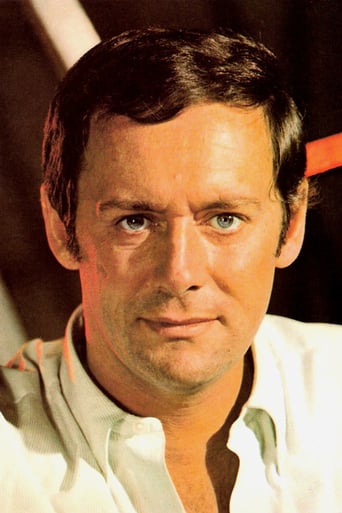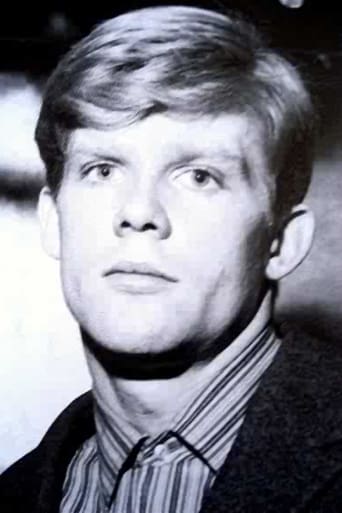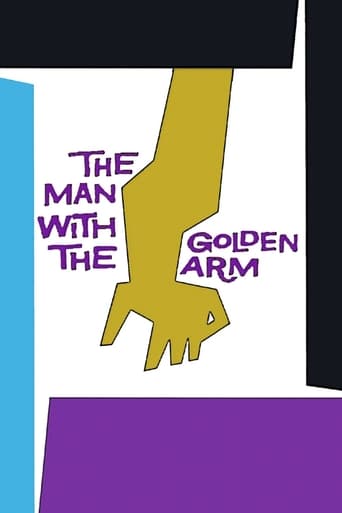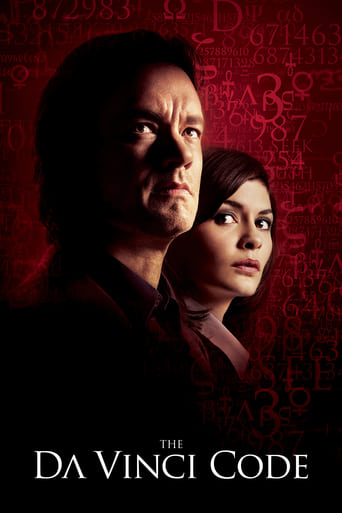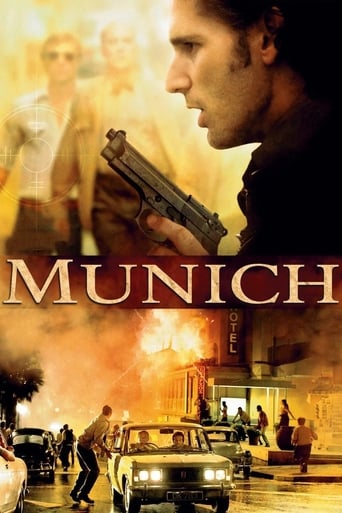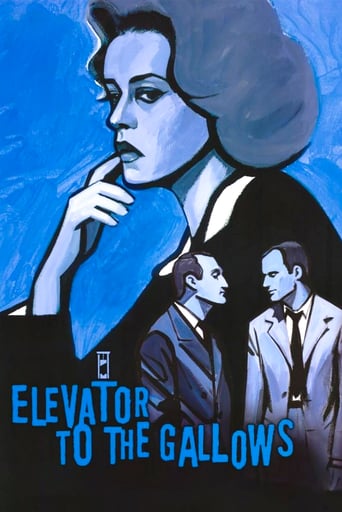
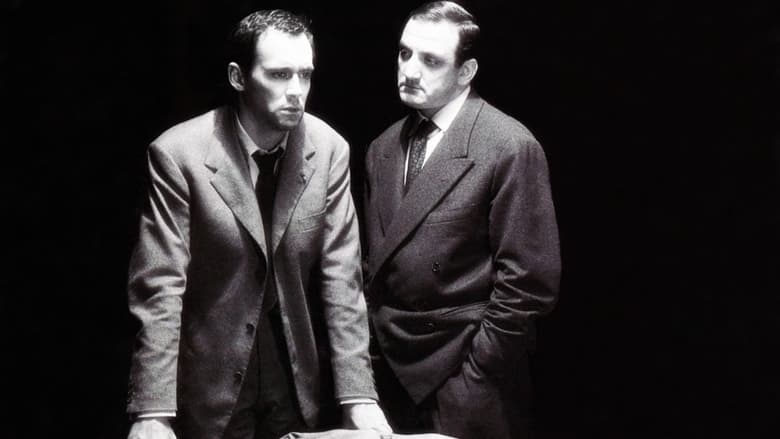
Elevator to the Gallows (1958)
A self-assured businessman murders his employer, the husband of his mistress, which unintentionally provokes an ill-fated chain of events.
Watch Trailer
Cast
Similar titles


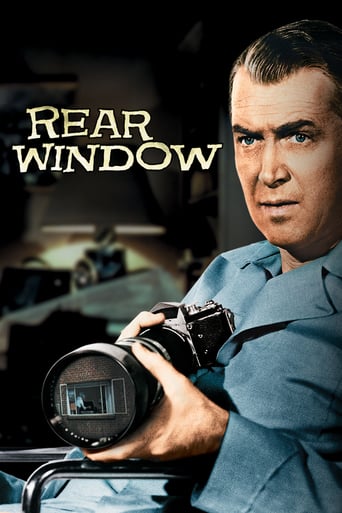
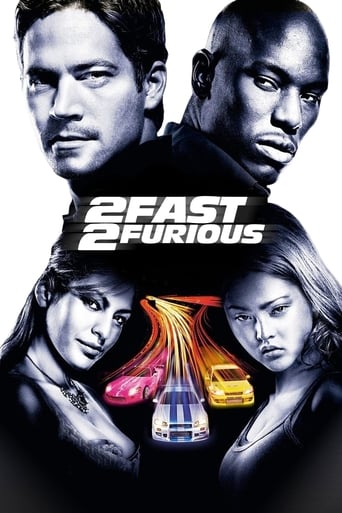

Reviews
So much average
everything you have heard about this movie is true.
There are better movies of two hours length. I loved the actress'performance.
There's no way I can possibly love it entirely but I just think its ridiculously bad, but enjoyable at the same time.
Louis Malle is telling a simple story: when committing a crime like murder don't make easy mistakes since this will give space to unforeseeable events and justice will prevail. Some parts of the story may seem a bit overdone in order to demonstrate the unpredictability of other actors involved but on the other hand the movie hardly ever loses its style and it's this style that excels. When beautiful Jeanne Moreau, in her despair of supposed betrayed love, is walking alone the nightly streets of Paris accompanied by the fine jazz tunes of Miles Davis then it feels like contemplating a valuable piece of art.It is also true that the side story of the young couple borrowing the car of Mr. Tavernier is a bit awkward and not too persuasive but on the other hand the play of young flower-girl Veronique is really impressive. What an outgoing and enthusiastic but weak and shy character at the same time. I am sure even today's teenagers could relate to her.Moreover, the movie is not simply a crime story but also has its social and political statements. The victim of the planned murder (next to an unplanned murder) is an unscrupulous arms-dealer who has his connections into the highest political ranks. This does not provide a favorable picture of a post war France, which is even worsened by the submissive and hypocritical behavior that great parts of society show towards this influential man. Only drunkard Mr. Subervie is naming him the right way and by doing so he even stresses the hypocrisy surrounding him.Last but not least Lino Ventura gives a cool and pragmatic detective, a role he should become famous for in his career. The police questioning scene in the dark with the two detectives interrogating Maurice Ronnet for a crime he has not committed is another highlight of the movie.
Louis Malle made his striking directorial debut in this French film, "Elevator to the Gallows" in 1958, with the script cowritten by him and Roger Nimier.Jeanne Moreau plays an unhappily married woman who colludes with her lover Tavernier (Maurice Ronet) to kill her husband (Jean Wall), for whom he works. Tavernier takes a gun, goes up to his boss' office via a rope out his own office window, and kills him. As he's leaving the building, he sees that he did not collect the rope. He leaves his car running, leaving his coat and gun inside while he runs in to retrieve the rope. Unfortunately, while he's in the elevator, the building is closed, and that includes the power. He's stuck.Meanwhile, two young people, an impulsive, cagey young man and his girlfriend from a flower shop (Georges Poujouly, Yori Bertin) steal Tavernier's fancy car and take off.Fabulous noir set in rainy France with captivating scenery and Miles Davis music, perfectly catching the atmosphere - Moreau, not knowing where Tavernier is, walking in the rain, going from bar to bar trying to find him; the two young lovers on an adventure, the girl with a romantic, Juliet-like attitude, the boy headstrong; Tavernier, smoking in the elevator as he works on how to get out; people still talking of the Occupation and war in Algiers...Malle weaves a fascinating story of fate and random circumstance.There isn't a lot of dialogue in this film, but the actions say it all. Paris in the rain and suspense - it doesn't get much better.
Intriguing policier with a very off-beat plot and a neat little reminder about the best-laid plans of mice and men. As much as we may think that we can plan our lives, a simple little thing -- say, taking an elevator, or leaving a camera in one's car -- may turn out to have life-or-death consequences. I found it quite interesting that the two romantic leads, Mrs. Carala (Jeanne Moreau) and Tavernier (Maurice Ronet), spend the entire length of the film apart.I think the movie falters toward its end, when Mrs. Carala turns detective and the police case falls too neatly into place. However, I enjoyed the little steps of the cat-and-mouse game.The younger, all-too-ordinary, unintelligent lovers' antics, and the way their lives go down the tubes in a heartbeat, is fascinating to watch and, sadly, not that hard to believe.This was a fun, if not totally coherent, highly atmospheric viewing experience. It kept my attention thoroughly.
Boasting a jazz score by the legendary Miles Davis, Louis Malle's "Elevator to the Gallows" is a moody film noir starring Maurice Ronet as Julien Tavernier, an office worker who murders a wealthy industrialist. Why? To be with the victim's wife of course.This is a plot typical of film noirs. What complicates the film is this: the victim is a war criminal who profited off France's many colonialist occupations (specifically in Algeria and Indochina). Julien, meanwhile, is a war hero and former parachutist who sees his kill as a form of poetic justice. This is a noir, however, and so Julien's best laid plans swiftly go awry. Pretty soon he finds himself trapped in an elevator and so caged at the very site of his crime. His predicament is inter-cut with the adventures of two kids in love, Louis and Veronica, who steal Julien's car and assume his identity. With this stollen identity comes another crime: the duo shoot to death two German tourists. To exonerate himself of the duo's crime, Julien must thus implicate himself in his own crime. Where are the police in all of this? Confused as hell.Malle then engages in another, largely symbolic sub-plot. Here Julien represents the men of the inter-war years, idealised, mythologised and touted as noble heroes. Louis, meanwhile, becomes indicative of post-war youths, living in the shadow of the War and envious of the nationally recognised achievements of those who came before. To assuage such feelings, Louis assumes Julien's identity and unconsciously becomes a WW2 soldier, and even goes so far as to kill two Germans on French soil with Julien's pistol. It's not only that Louis eventually realises what the sanctified image of Julien really represents, like Julien's own realisations with regard to his boss, but that both Julien and Louis find themselves unable to stop killing. The war makes a murderer out of one, and forces the other to kill out of fear of exclusion."Elevator to the Gallows" co-stars Jeanne Moreau, who famously acted in Truffaut's "Jules and Jim". Its moody, noirish cinematography was by Henri Decae, who turns elevators into prisons and city streets into hypnotic shadow-worlds (Decae also shot Melville's "Bob the Gambler" and "The Samurai").7.9/10 - One of Malle's best. See too Renoir's "La Bête Humaine" ("The Human Beast"), arguably the first French noir.
